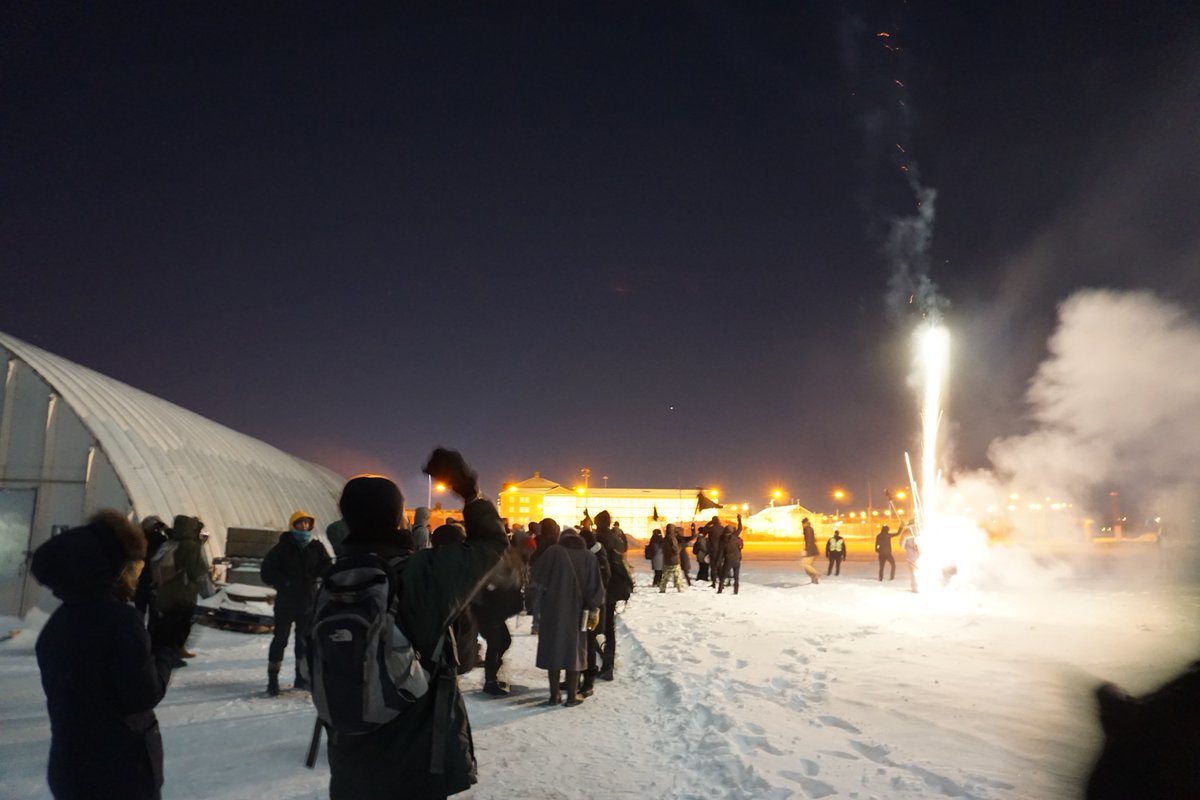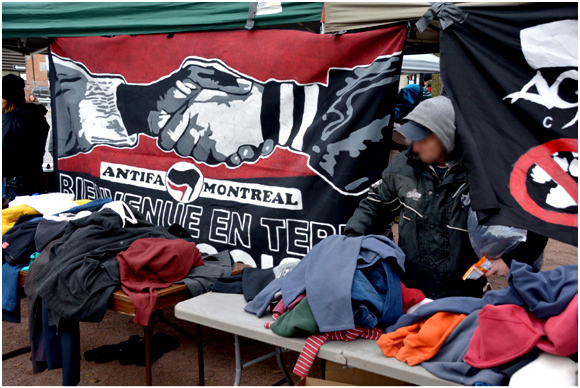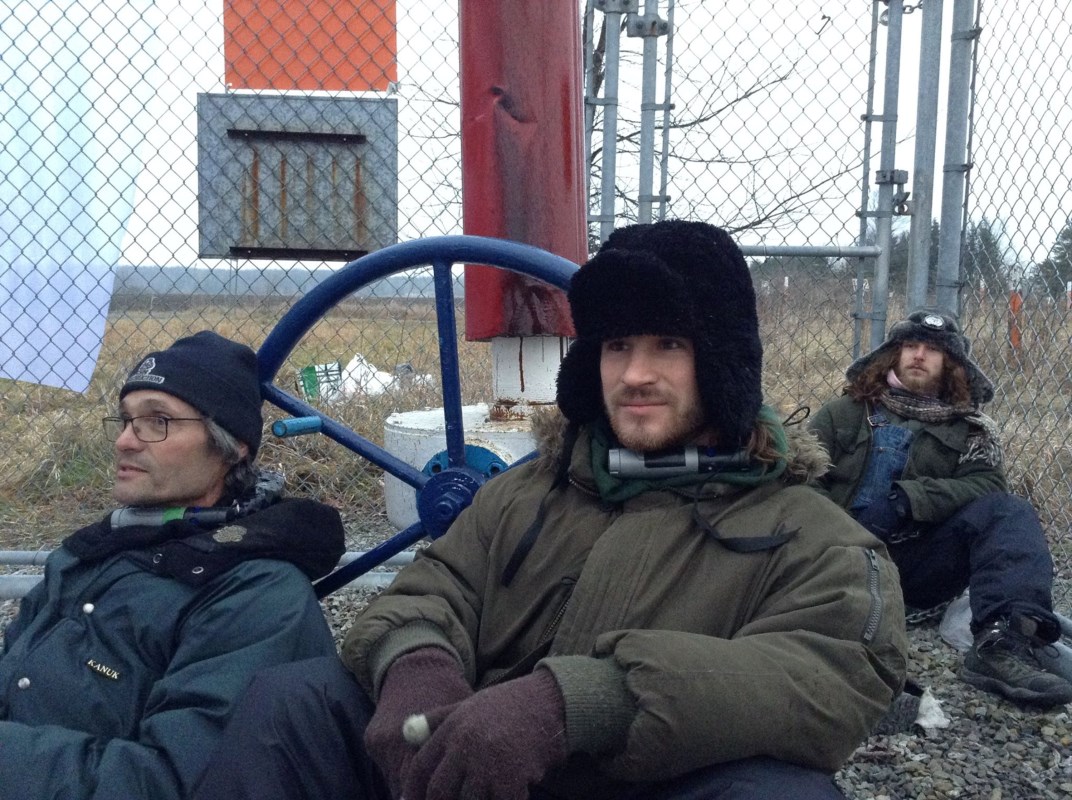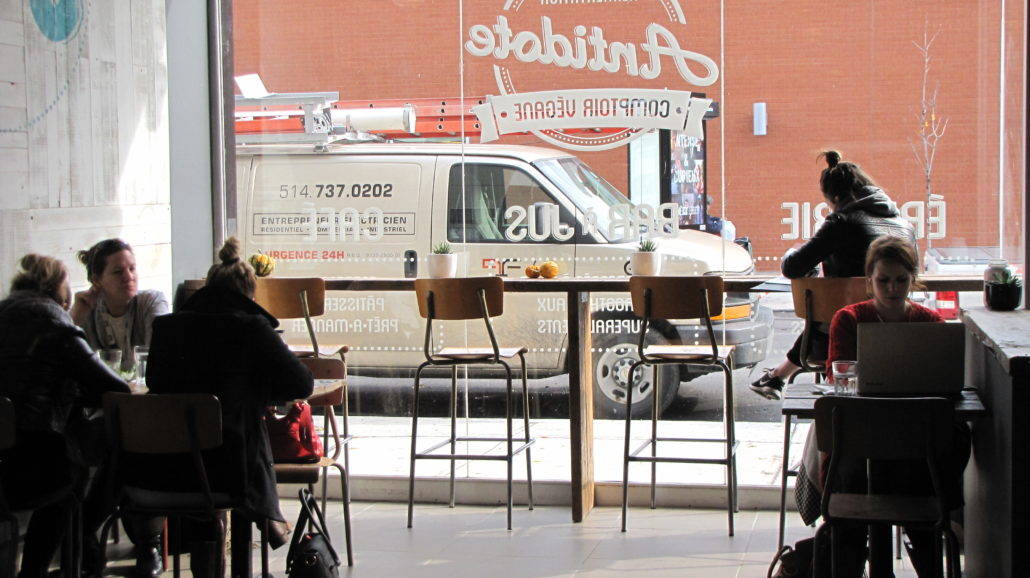
A big deal was made last weekend (January 20–21) about a tawdry postering campaign in Montréal that targeted an array of political figures and local militants.Without downplaying the significance of the action, we believe that it is important to not blow things out of proportion and to identify the people involved.
Rumours have been circulating for a while about plans by the far-right groupuscule Atalante, which has been active in Québec City for years now, to launch a “new” chapter in Montréal. The feeble overnight display of January 20–21 was meant to be this notorious new chapter’s coming out party.
It’s important to keep in mind that the so-called Montréal branch of Atalante is made up of the same pinheads that have been kicking around the city for a while, primarily as members of the Soldiers of Odin. A few of them have already been featured on this site, e.g., Philippe Gendron and David Leblanc (SOO), as has another participant, Shawn Beauvais-MacDonald, a white supremacist fan of the alt-right, who has already made a number of appearances here.
Let’s take a look at who took part in this fabled January night-time adventure. The fascists were so kind as to post an entire photo album of their half-assed escapades on Atalante’s Facebook page.
///
This person has the same build, the same posture, the recognizable leather jacket, and the distinct clothing of a certain Shawn Beauvais-MacDonald, whom we’ve discussed numerous times on this site.
As was already reported on the On Jase, website, Alan Kovak (real name, Martin Minna; alias Boris Popovich) was foolish enough to use his Facebook page (all of his accounts are now closed) to publish a series of photos and a video bragging about the role he and his associates, whom he was good enough to identify, played in the postering campaign.
Beauvais-MacDonald is very easily identified, not only by his physical stature, posture, and clothing, but by comparisons with his well documented appearance at numerous far-right demonstrations in 2017:
Shawn Beauvais-MacDonald at the La Meute demonstration in Montréal on March 4, 2017. Note the “Venus” tuque.
Shawn Beauvais-MacDonald at the white supremacist Unite the Right demonstration in Charlottesville, Virginia, August 12, 2017.
Shawn Beauvais-MacDonald at La Meute’s “underground garage demonstration” in Québec City on August 20, 2017.
We also know that Shawn Beauvais-MacDonald is close to Atalante and the Soldiers of Odin, as is indicated by this “family photo” with Raphaël Lévesque (alias Raf Stomper, leader of Atalante) and his easily identified presence in the Atalante/SOO contingent at the November 25, 2017 demonstration in Québec City:
Shawn Beauvais-MacDonald with the Atalante/SOO contingent at the far-right demonstration in Québec City on November 25, 2017. Note the leather jacket, the “Venus” tuque, and the t-shirt.
Some Atalante members and sympathizers who participated in the January 20 postering campaign are also easily identified by cross referencing photos from a variety of sources.
This individual carries himself in the same way as Mathieu Bergeron, a close associate of Atalante, who was easily recognized on the Esplanade rampart during the far-right demonstration in Québec city on November 25, 2017:
Mathieu Bergeron with the Atalante/SOO contingent at the far-right demonstration in Québec City on November 25, 2017. Note the Légitime Violence ball cap, identical to the one in the previous two photos and the next one.
The most well known Atalante member is certainly Raphaël “Raf Stomper” Lévesque, who was clearly part of the January 20, 2108 adventure in Montréal:
Raphaël Lévesque, Atalante leader, participating in the January 20, 2018 postering campaign in Montréal. Note the North Face jacket and the New Balance running shoes.
Raphaël Lévesque rallying his storm troopers at the November 25, 2017 far-right demonstration at the Assemblée Nationale.
There are numerous photos of the Québec City Stomper Crew and Légitime Violence’s entourage on the Montréal Contre-Information website, and Raphaël Lévesque appears in most of them.
A third Atalante accomplice appears in the January 20, 2018 campaign photo album, Vincent Cyr of Varennes:
Vincent Cyr, Atalante sympathizer in Montréal on January 20, 2018. Note the tattoos on his hands and the patch on his bomber jacket.
Vincent Cyr with Atalante and the Soldiers of Odin at the far-right demonstration in Québec City onNovember 25, 2017.
It seems another member of Atalante’s entourage, a bonehead from the Québec City Stompers scene, Jonathan Payeur, was at least partially responsible for producing the group’s banners, which get their distinctive character from the chosen font. Here’s a revealing exchange on the subject from Raf Stomper’s Facebook page:
Let’s not forget our good friend David Leblanc, the “I’m not a racist” Nazi and all-round Soldiers of Odin fuck-up, another victim of the ineptitude of his accomplice Martin Minna, alias Alan Kovak:
The Soldiers of Odin’s David Leblanc, in the company of Guillaume Levesque and Ian Alarie from Varennes, showing us just how high he can reach.
It was a busy weekend for David Leblanc, who was in Sherbrooke on January 21 to participate in the “Journée du drapeau” [flag day] with Les Insoumis. Behind him are Soldiers of Odin Philippe Gendron and Katy Latulippe.
///
Rather than succumb to fear or inadvertently contribute to their propaganda by sharing the photos of their racist exploits without providing a context, we believe it is essential that we unmask and expose these fascists, who are taking up an increasing amount of space in our cities.
If you have additional information on the individuals mentioned in this article or about other fascists, contact alerta-mtl@riseup.net.



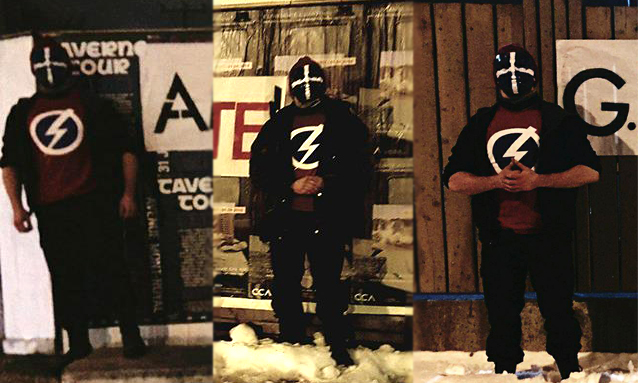
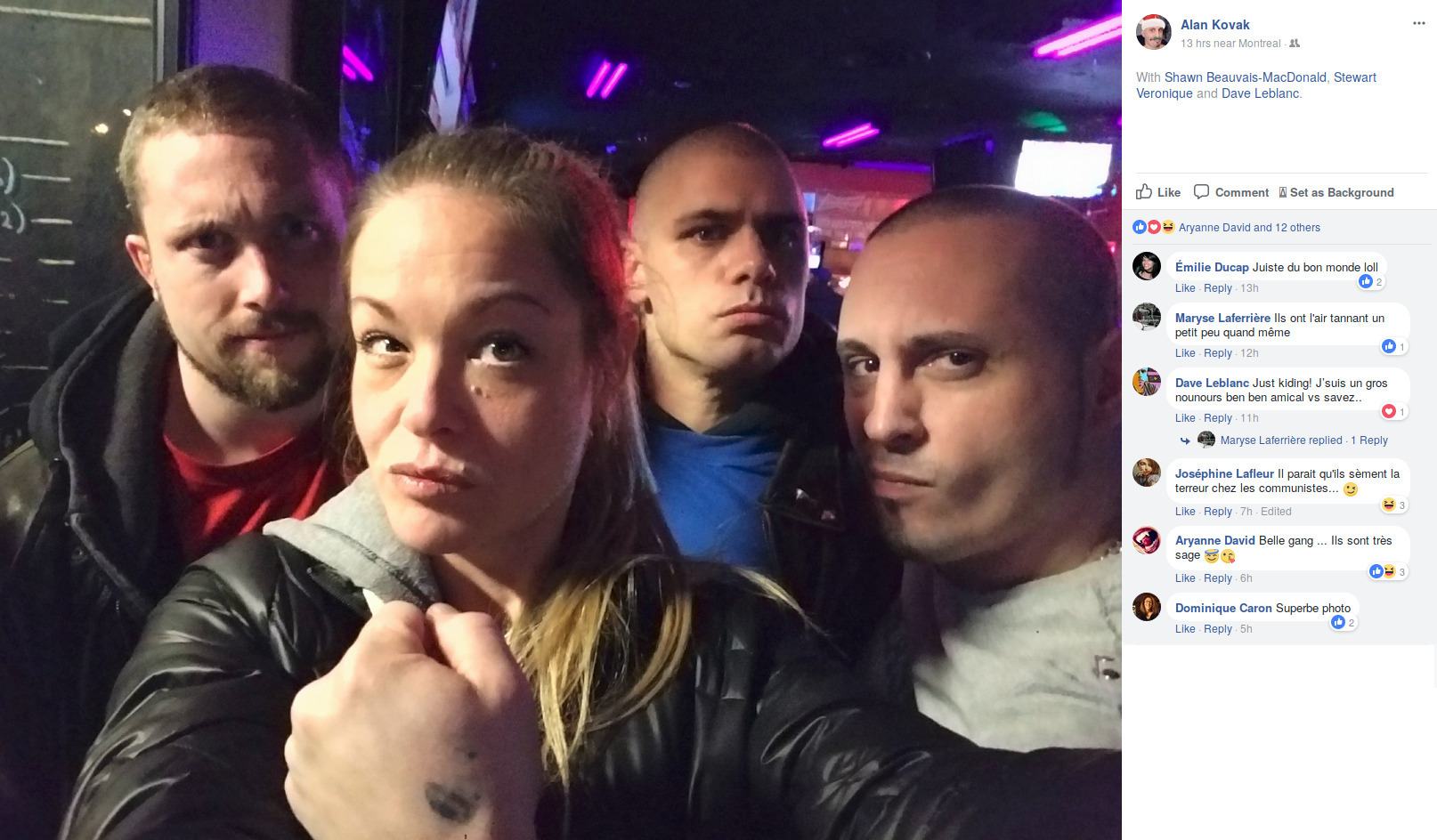
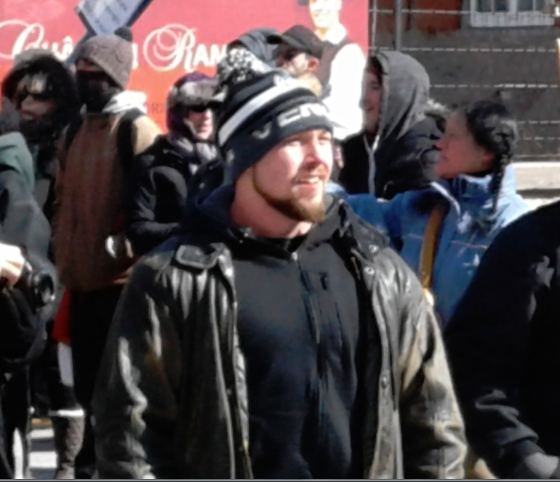
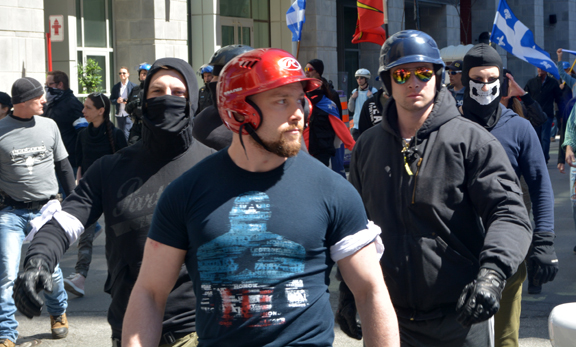
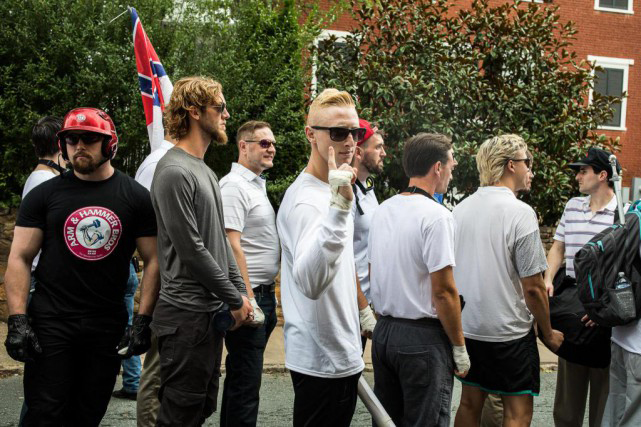
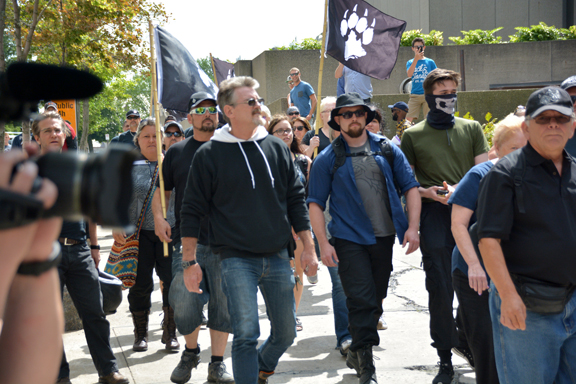
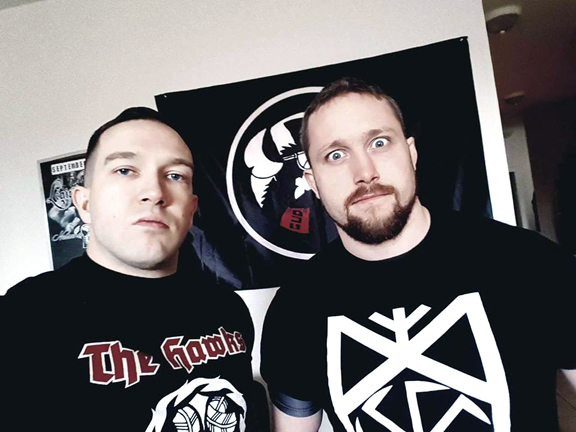
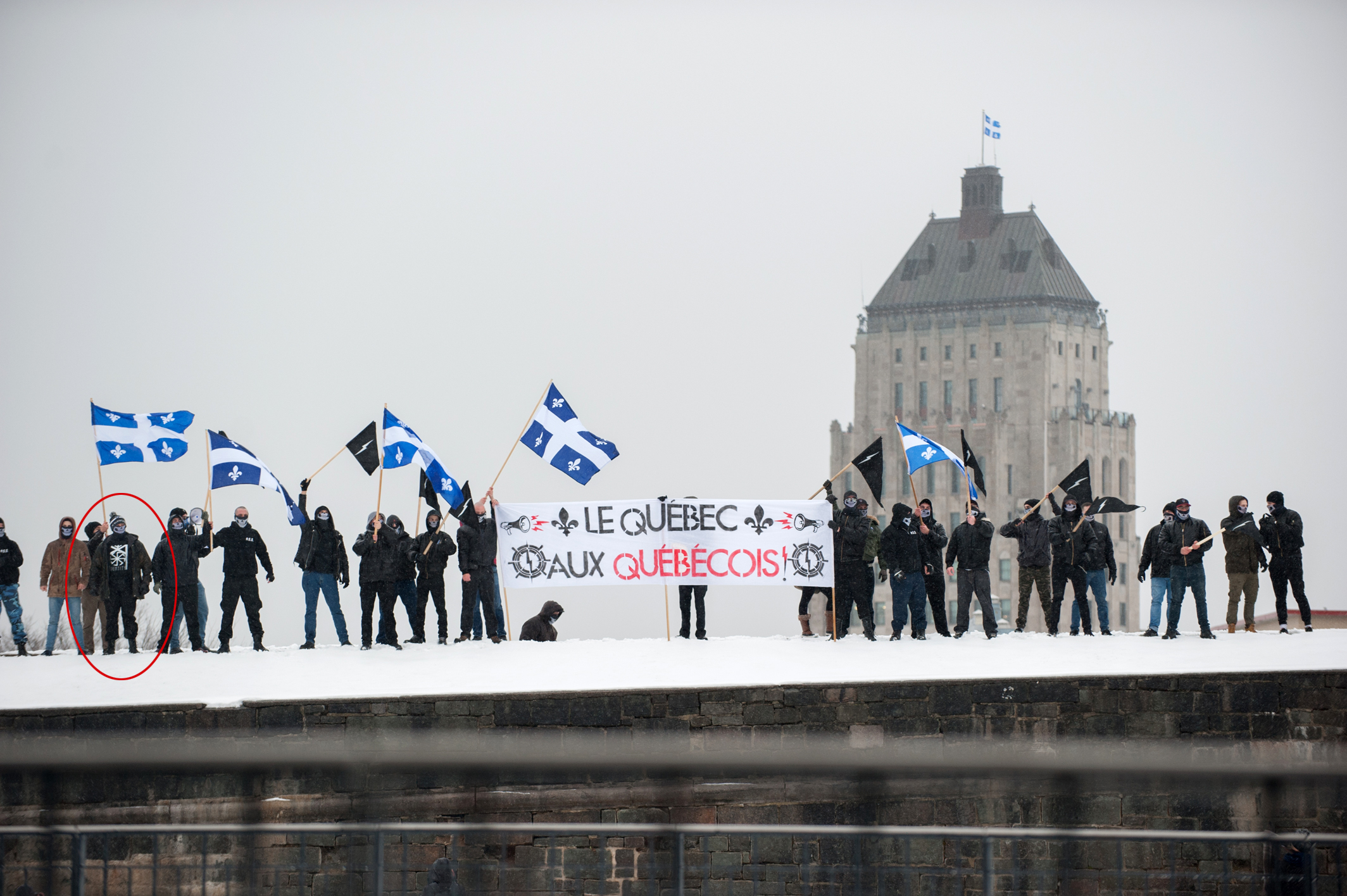
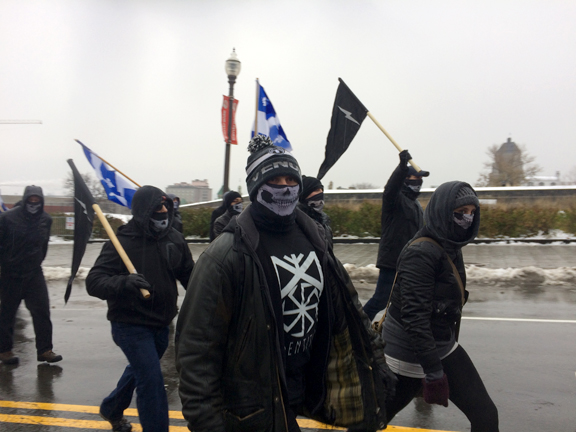
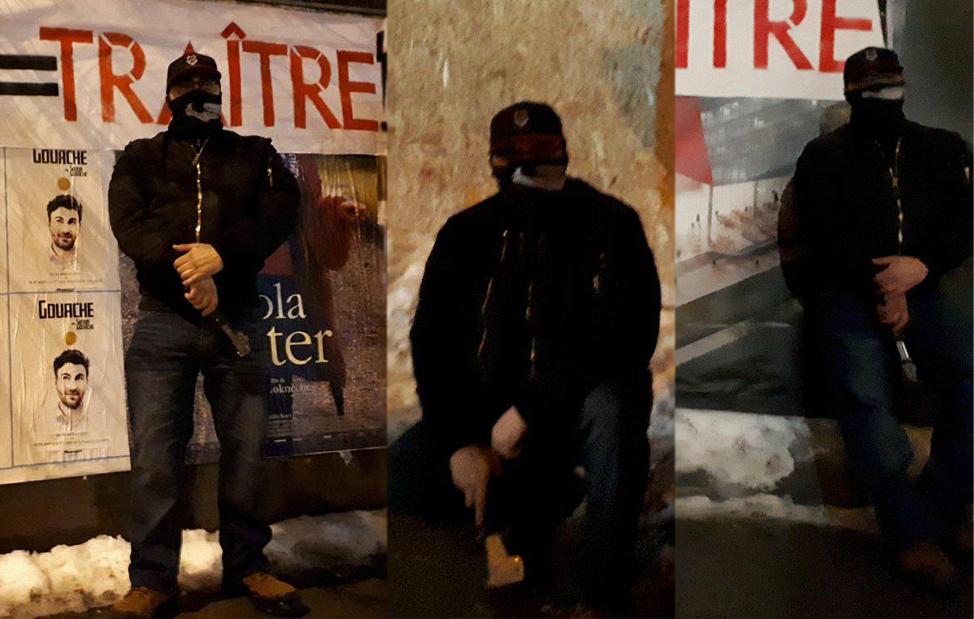
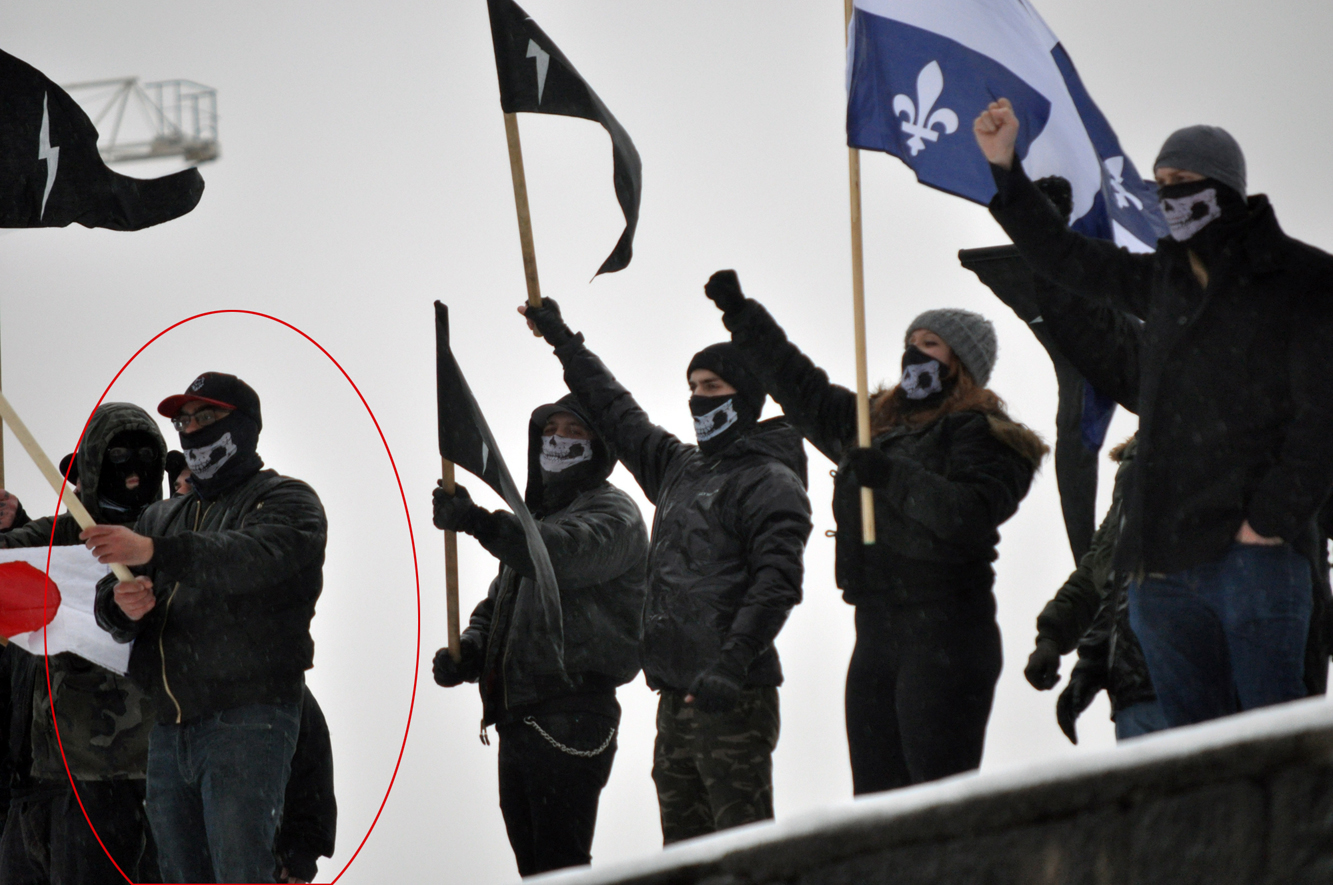
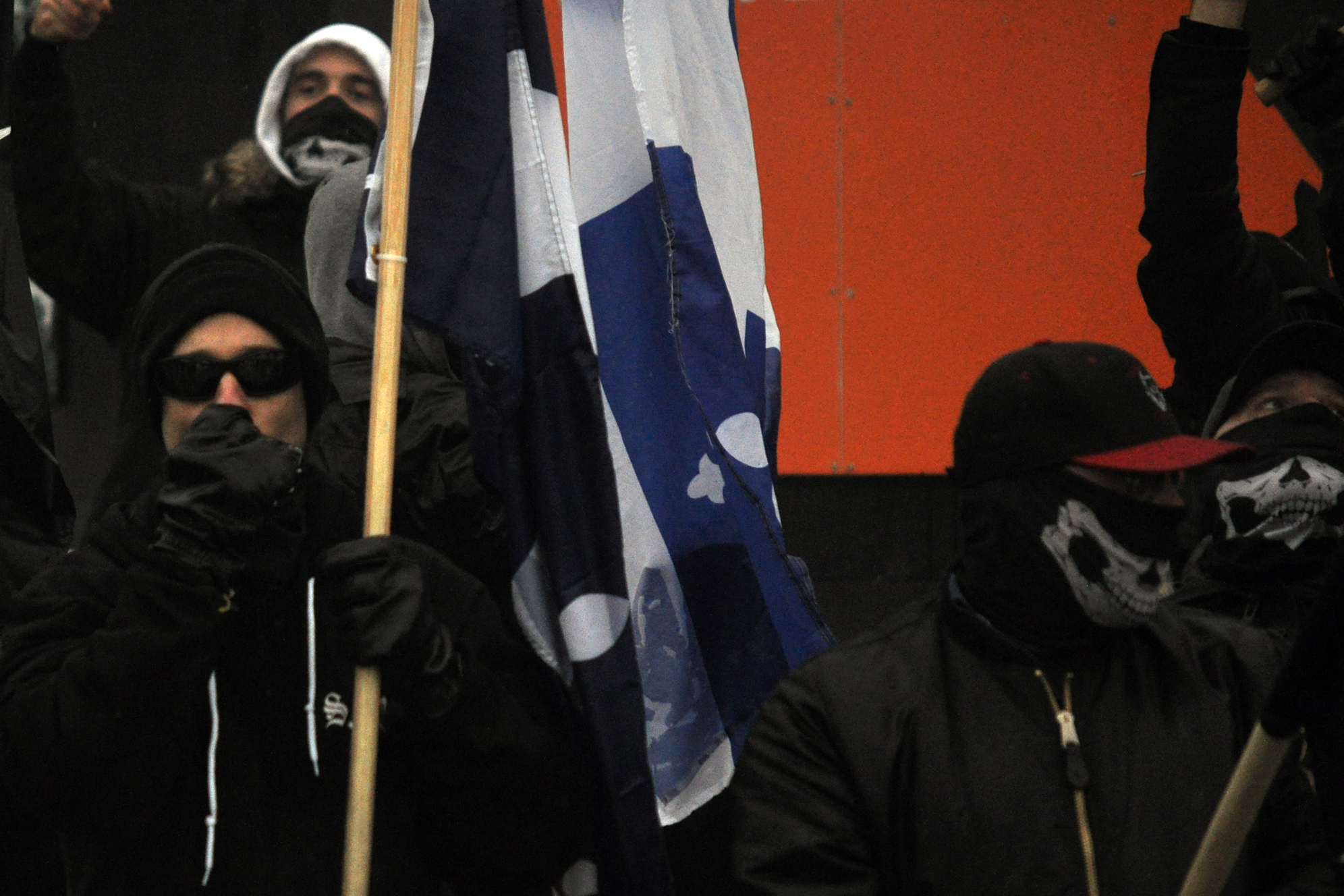


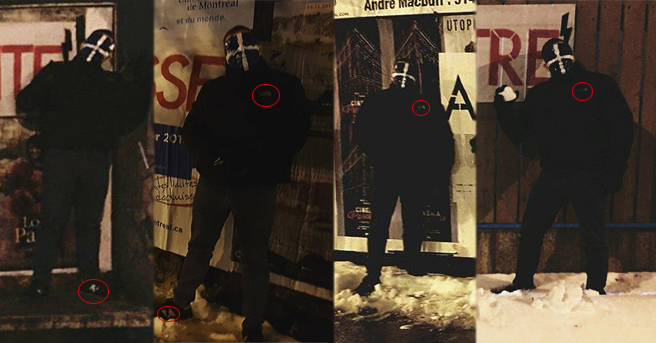
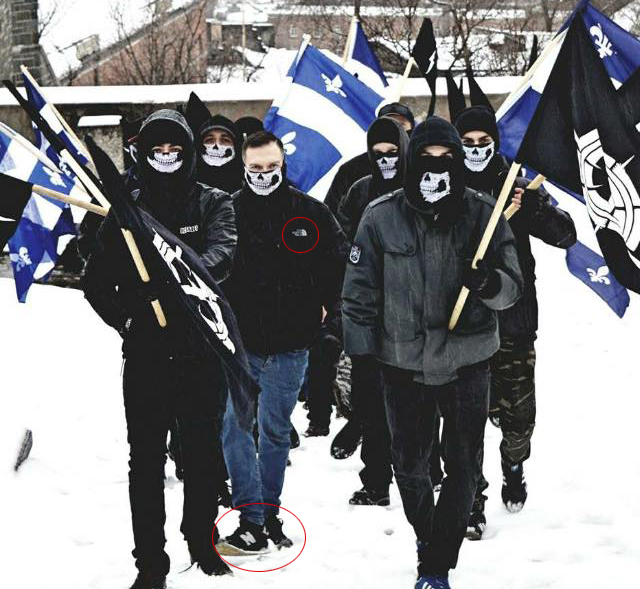


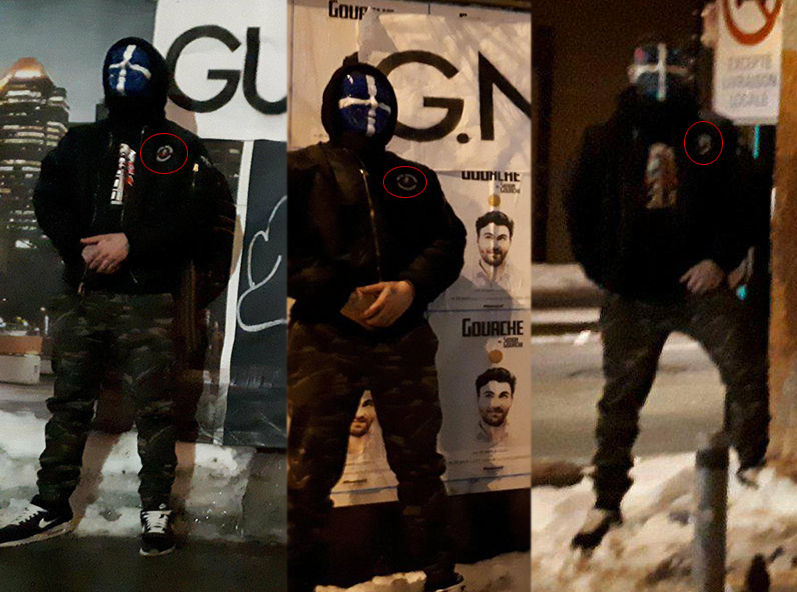

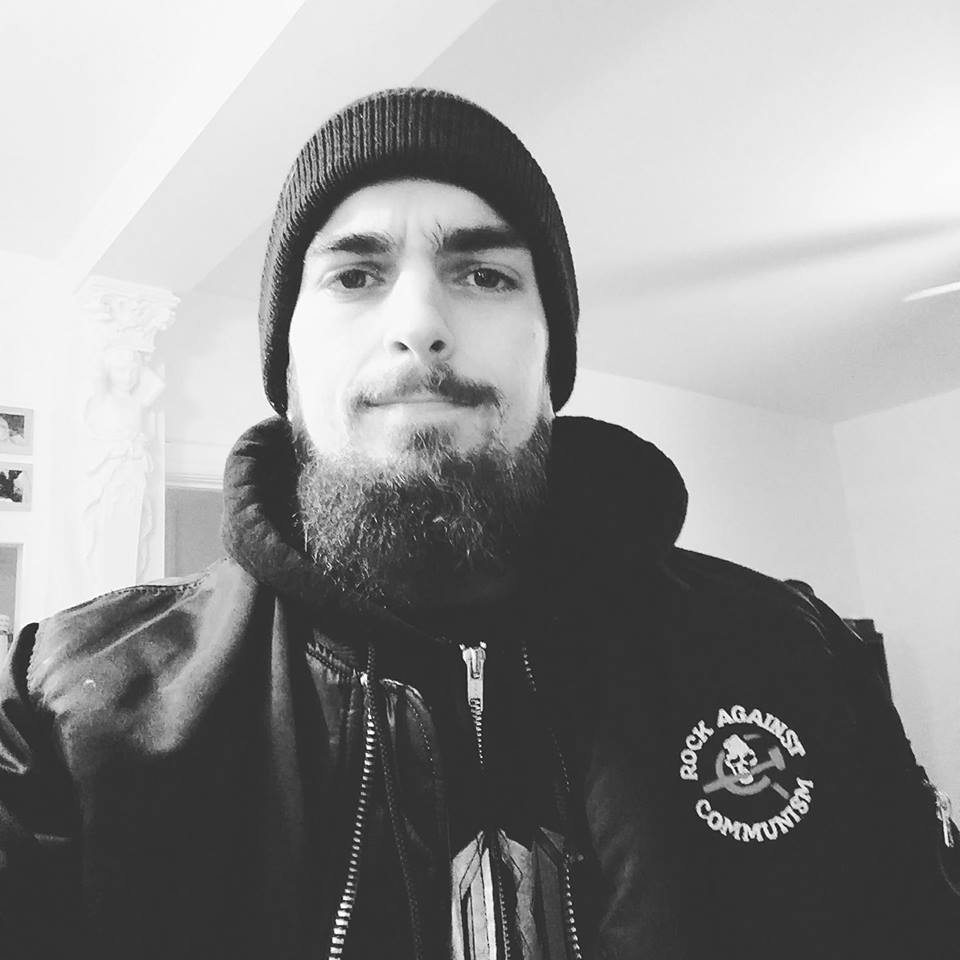
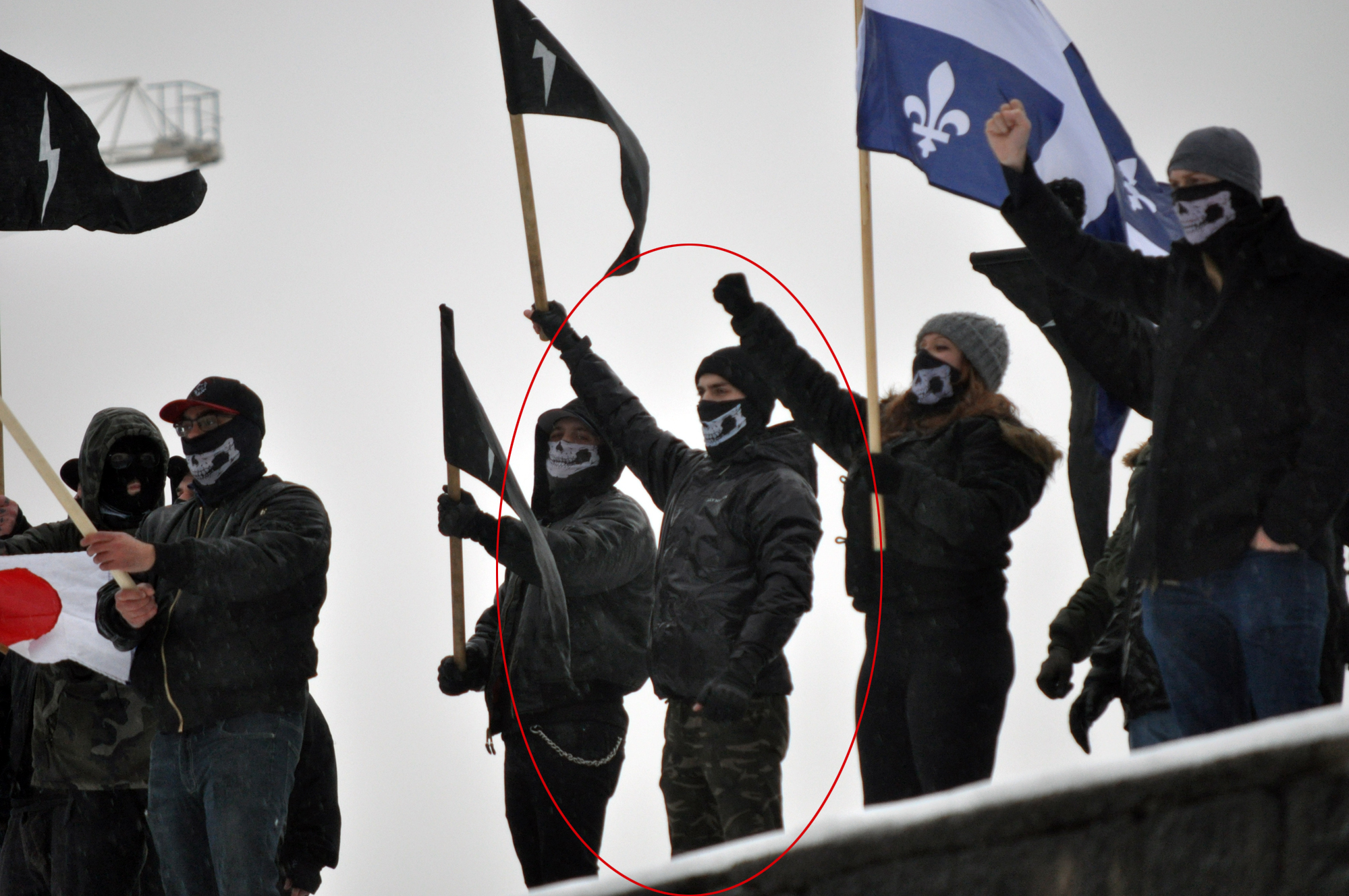
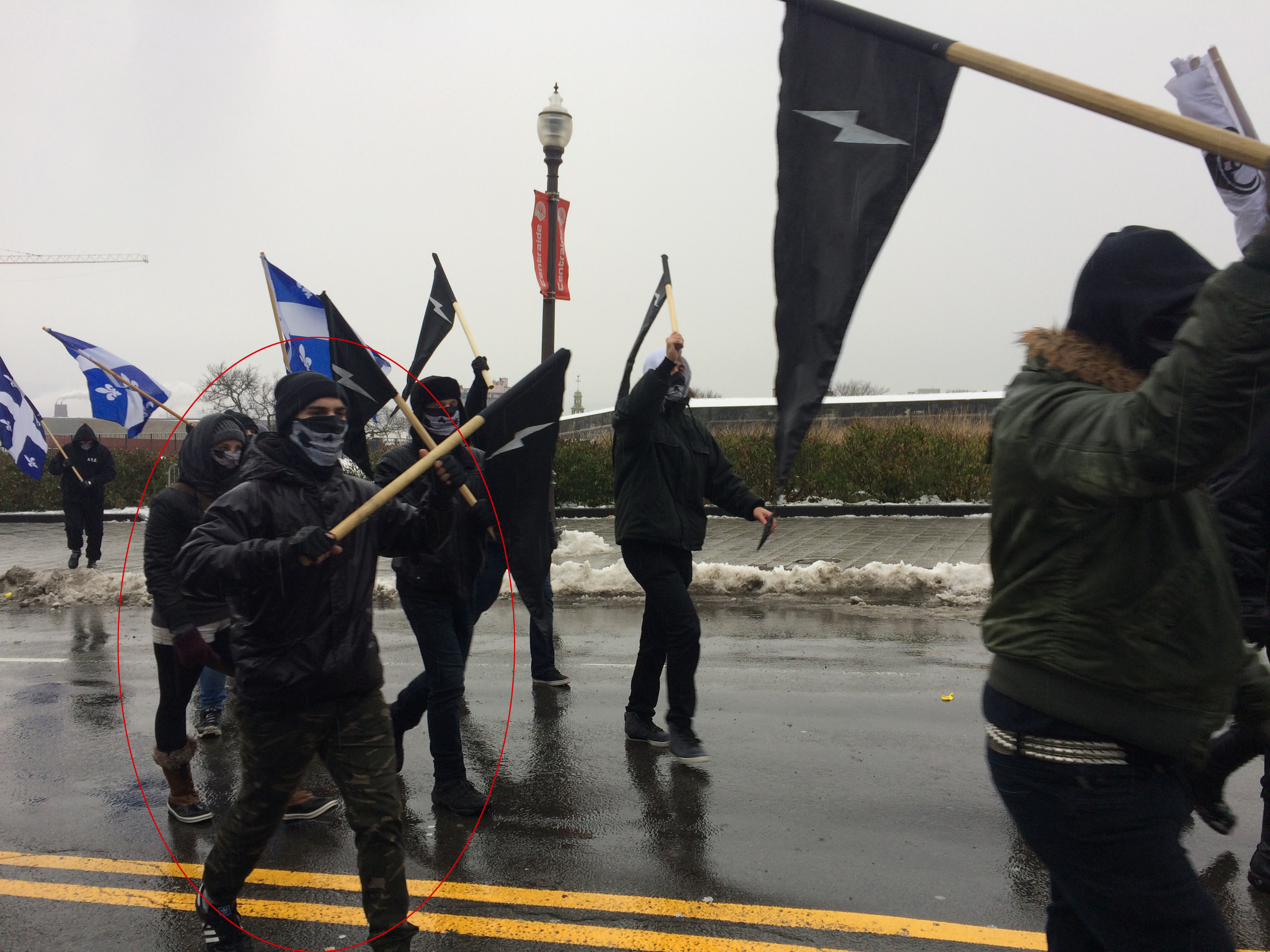



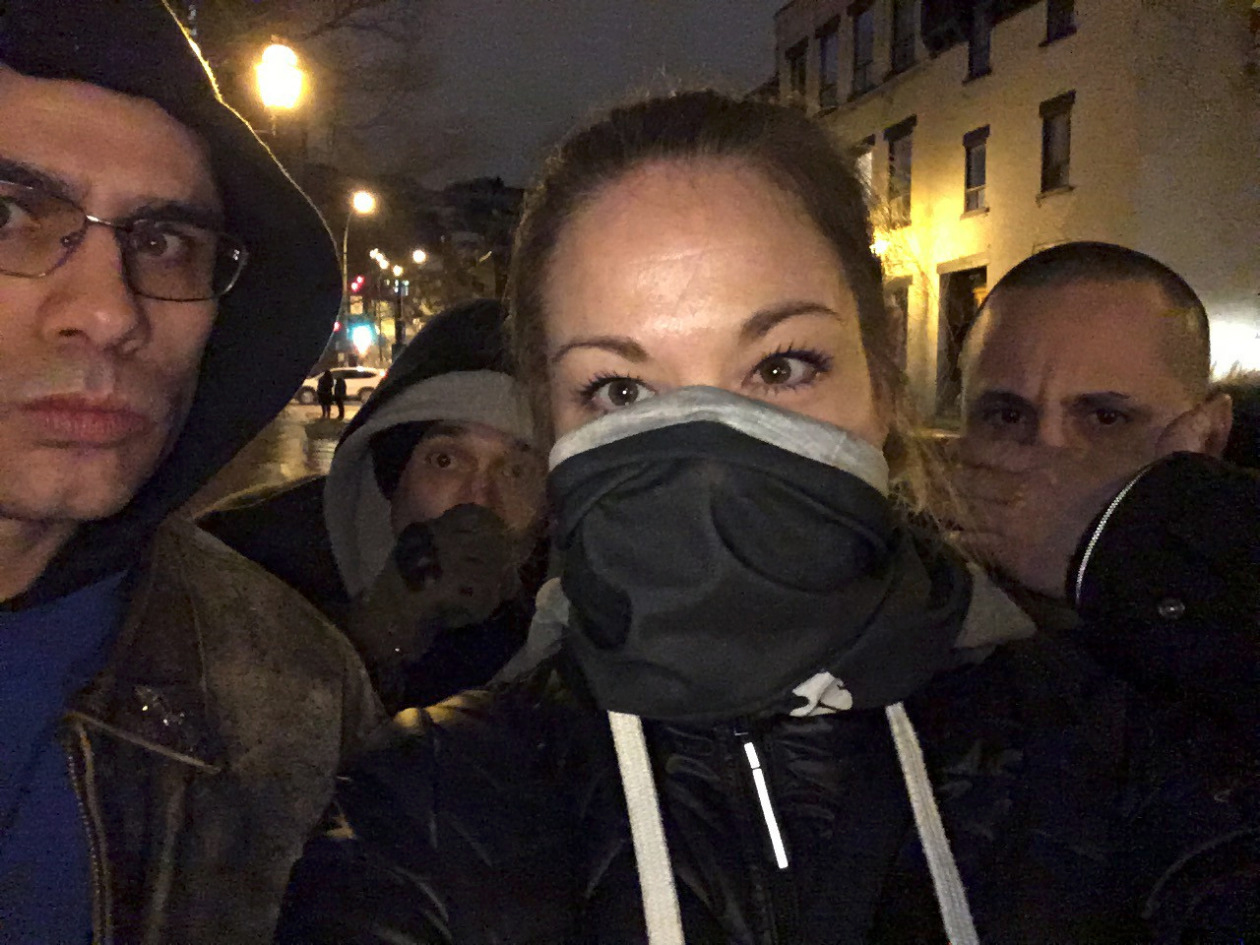
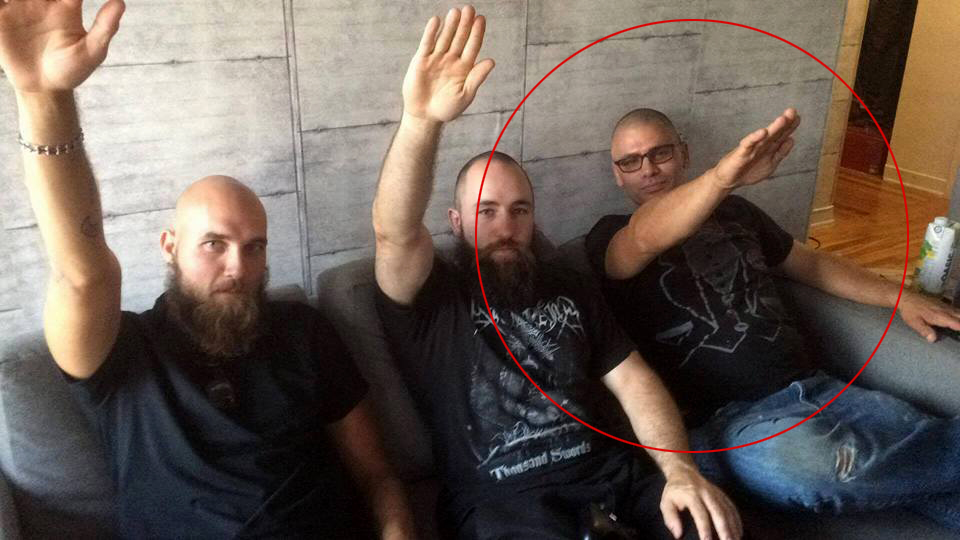
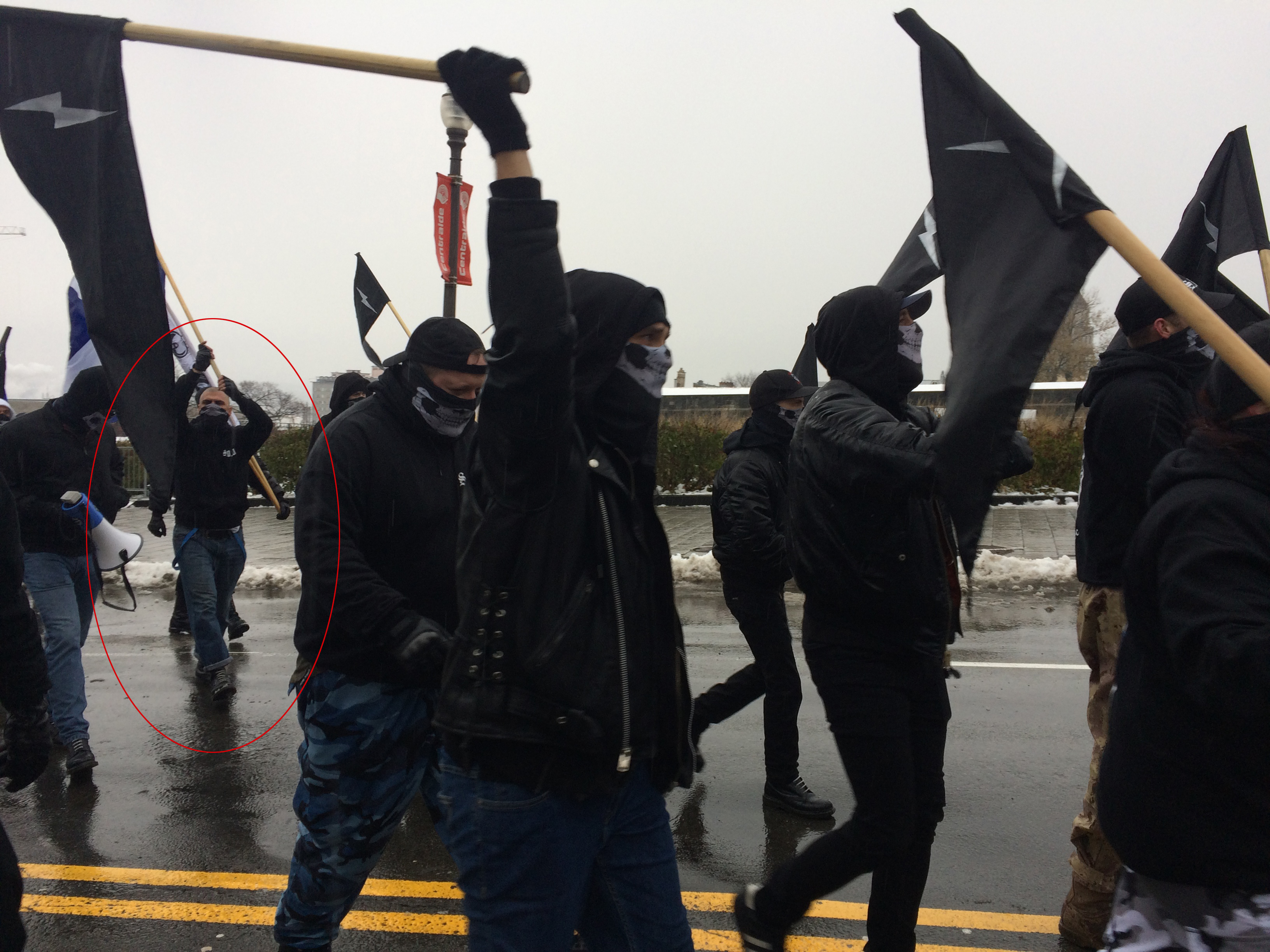


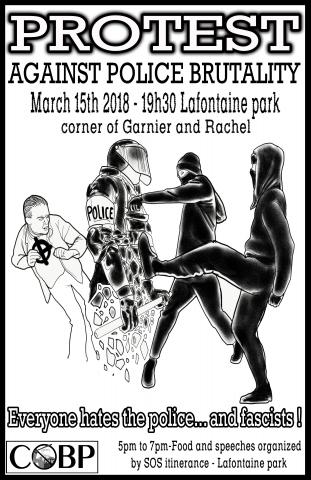
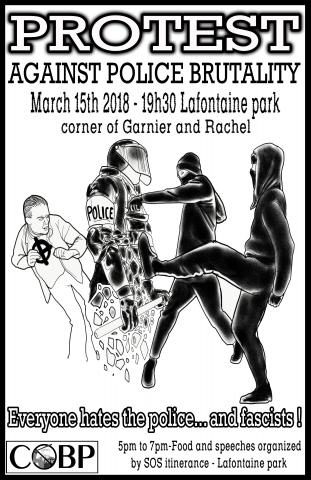
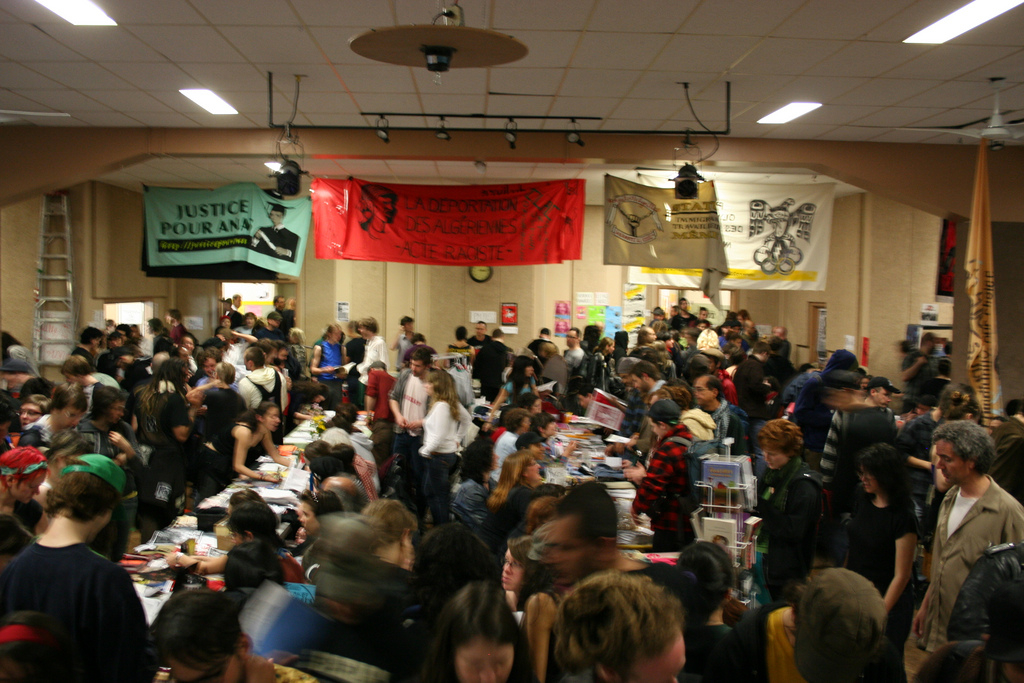

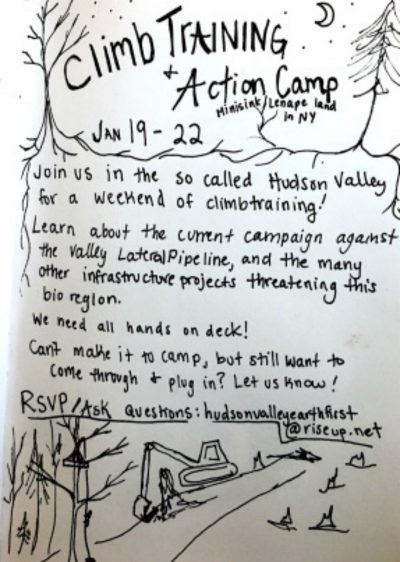 We need all hands on deck in the so called “Hudson Valley.” Come join Hudson Valley Earth First! for a climb/action camp as we continue the fight against the Valley Lateral Pipeline and the Corporate Power Ventures Power Plant in Orange County, New York. We are looking for folks to come join us for this campaign in order to help build capacity for this fight, and for the fight against future infrastructure projects in this region. Feel free to join us at any time- just email us to let us know when you can come through. Otherwise, we’ll see you at camp from January 19- 22.
We need all hands on deck in the so called “Hudson Valley.” Come join Hudson Valley Earth First! for a climb/action camp as we continue the fight against the Valley Lateral Pipeline and the Corporate Power Ventures Power Plant in Orange County, New York. We are looking for folks to come join us for this campaign in order to help build capacity for this fight, and for the fight against future infrastructure projects in this region. Feel free to join us at any time- just email us to let us know when you can come through. Otherwise, we’ll see you at camp from January 19- 22.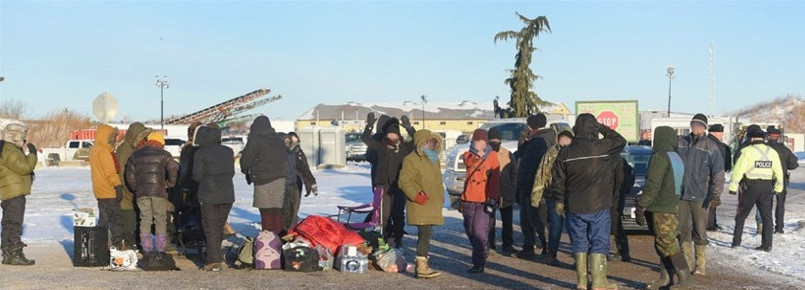
 Enbridge’s plan for line 10 is to replace 35 kilometers of pipeline running between Hamilton and Binbrook. The line is 55 years old and has been the source of many “smaller” leaks in the area, each of which wreak irreversible damage on the surrounding ecosystem. Enbridge of course has no concern for the watershed or communities around the pipeline, and wants only to increase profits and so they are nearly doubling the diameter of the pipeline in order to accommodate more oil. The expansion of this pipeline means an increase in Tar Sands extraction. It’s important to remember that even when pipelines aren’t actively spilling, the oil trudging through them poisoned millions of gallons of water an hour in its production. The Line 10 project is part of Enbridge’s larger pipeline expansion plan which (as predicted) has been rubber-stamped by Canada’s farcical National Energy Board. The only meaningful accommodations that Enbridge has been forced to make have nothing to do with conservation of life or land, but rather preserving the integrity of two upper class golf courses which Enbridge has agreed to build around so as not to disturb any games this summer. These are the values reflected by Canada’s only environmental oversight on this project – protect wealth at all costs, disregard anything that stands in the way.
Enbridge’s plan for line 10 is to replace 35 kilometers of pipeline running between Hamilton and Binbrook. The line is 55 years old and has been the source of many “smaller” leaks in the area, each of which wreak irreversible damage on the surrounding ecosystem. Enbridge of course has no concern for the watershed or communities around the pipeline, and wants only to increase profits and so they are nearly doubling the diameter of the pipeline in order to accommodate more oil. The expansion of this pipeline means an increase in Tar Sands extraction. It’s important to remember that even when pipelines aren’t actively spilling, the oil trudging through them poisoned millions of gallons of water an hour in its production. The Line 10 project is part of Enbridge’s larger pipeline expansion plan which (as predicted) has been rubber-stamped by Canada’s farcical National Energy Board. The only meaningful accommodations that Enbridge has been forced to make have nothing to do with conservation of life or land, but rather preserving the integrity of two upper class golf courses which Enbridge has agreed to build around so as not to disturb any games this summer. These are the values reflected by Canada’s only environmental oversight on this project – protect wealth at all costs, disregard anything that stands in the way. Our occupation of S/A Energy’s headquarters lasted from about 6am until 2pm. Spirits stayed high throughout the day as we warmed our toes by the fire, showed off some slick dance moves, and enjoyed a hot homecooked taco buffet out of the back of a pickup truck. We were kept on our toes by the perpetual shenanigans of the police and S/A managers who were desperate to see the work day continue as planned. One of the most dramatic moments came when a line of S/A work trucks attempted to make a back-door escape across a snowy field and over a roadside ditch. Though one truck made it out, some fast moving bloackaders were able to head-off the second truck, and watched as it oafishly rolled back into the ditch. A loud crack let us know that the axle of the truck wasn’t happy, and the spinning of the tires let us know that the truck wouldn’t be moving anywhere without a tow. We laughed and celebrated the thought of S/A sabotaging their own work trucks in such a cunning plot.
Our occupation of S/A Energy’s headquarters lasted from about 6am until 2pm. Spirits stayed high throughout the day as we warmed our toes by the fire, showed off some slick dance moves, and enjoyed a hot homecooked taco buffet out of the back of a pickup truck. We were kept on our toes by the perpetual shenanigans of the police and S/A managers who were desperate to see the work day continue as planned. One of the most dramatic moments came when a line of S/A work trucks attempted to make a back-door escape across a snowy field and over a roadside ditch. Though one truck made it out, some fast moving bloackaders were able to head-off the second truck, and watched as it oafishly rolled back into the ditch. A loud crack let us know that the axle of the truck wasn’t happy, and the spinning of the tires let us know that the truck wouldn’t be moving anywhere without a tow. We laughed and celebrated the thought of S/A sabotaging their own work trucks in such a cunning plot.